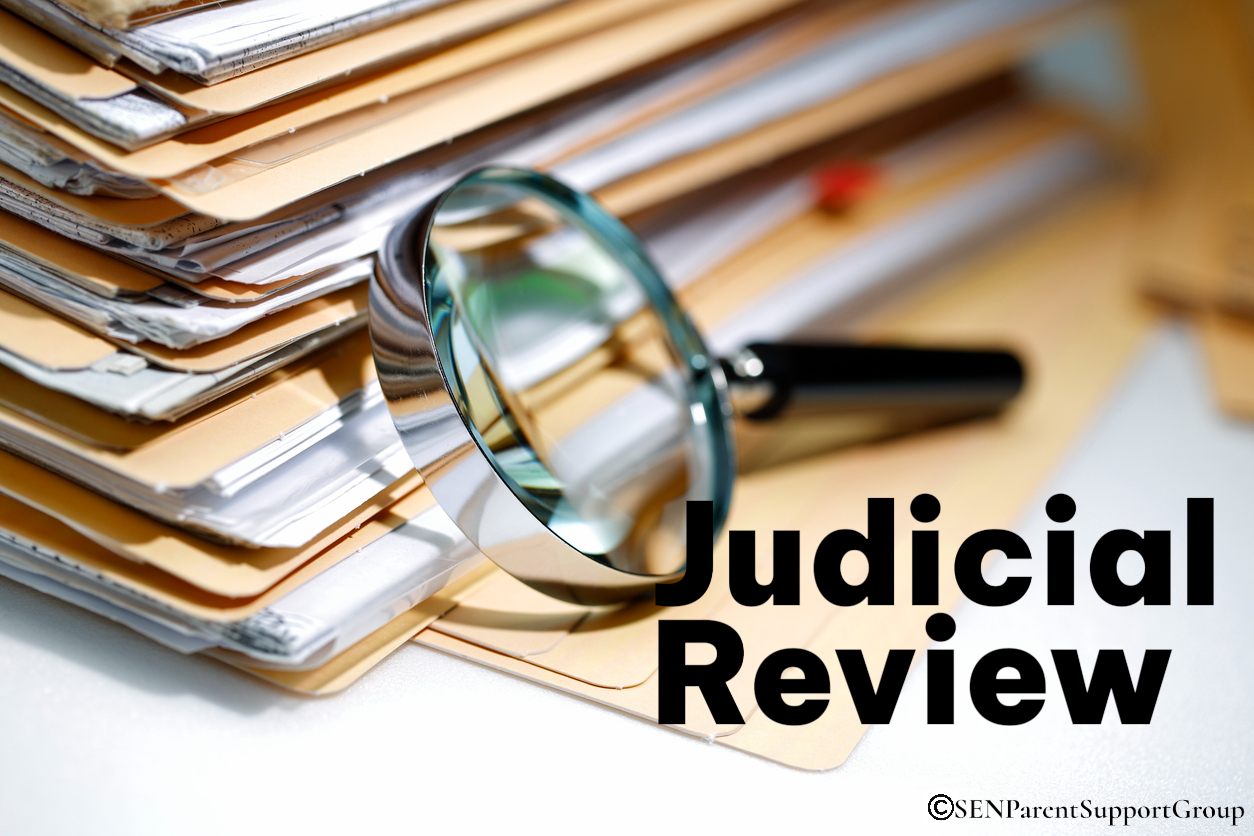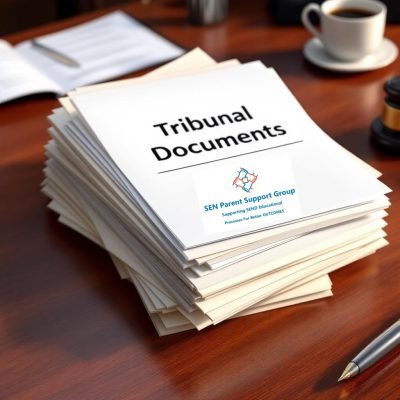A judicial review is a court process where the High Court examines whether a public body acted lawfully, fairly and reasonably when making a decision affecting a child or family. The court reviews the decision-making process rather than substituting its own view about what the right outcome should have been. Remedies can include quashing the decision, ordering the public body to take a particular step, or requiring a clear explanation of how the decision was reached.
When would SEND families consider a judicial review
- The local authority fails to carry out a legal duty
Examples include not issuing an EHCP after agreeing to do so, failing to secure provision set out in an EHCP, or not arranging required education or care. - Procedural unfairness or irrationality
Decisions made without following lawful procedures, decisions that ignore relevant evidence, or decisions that are plainly unreasonable. - Blanket policies or unlawful general practices
When a policy applies a one-size-fits-all rule without considering the child’s individual needs or fails to meet equality duties. - No effective alternative remedy exists
Judicial review is a last resort when complaints, mediation, SEND Tribunal appeals or Ombudsman routes cannot realistically or timely fix the problem.
Important timing and practical checks before you proceed
- Act quickly the usual limit is three months from the decision or event. Missing time limits can be fatal to a claim.
- Work through other routes first when they are realistic use the LA complaints process, request urgent reviews, and pursue SEND Tribunal rights where those routes can provide the remedy you need.
- Collect detailed evidence contemporaneous emails, meeting notes, EHCP drafts, provision maps and witness accounts that show what happened and how the child was affected.
- Seek specialist legal advice early a solicitor with SEND or public law experience will test whether judicial review is appropriate and whether you have an arguable case.
- Prepare a pre-action letter you or your solicitor will normally send this to the public body to explain the complaint and give them a chance to remedy the problem before court proceedings start.
The judicial review process and likely stages
- Pre-action stage
- Send a detailed pre-action letter asking the public body to explain and, if possible, fix the issue.
- Give the public body a reasonable short period to respond and take corrective action.
- Permission stage
- File an application for permission to apply for judicial review. The court tests whether there is an arguable case. Many claims fail at this stage.
- Substantive hearing
- If permission is granted, the court holds a full hearing to decide whether the public body acted lawfully, fairly and reasonably. The court examines documents and legal arguments.
- Remedies and orders
- The court can quash decisions, order the public body to act, make declarations about lawfulness, and award costs. The court will not usually order a particular substantive outcome beyond ensuring lawful decision-making.
Costs, funding and likelihood
- Costs risk losing an application can lead to a costs order against you. Assess cost exposure with your legal adviser.
- Funding options legal aid is limited for these cases; explore legal aid where available, pro bono help, or conditional fee arrangements.
- Realistic prospects judicial review challenges legality and process not the content of decisions. Strong documentary evidence of procedural error or irrationality improves prospects.
Practical checklist before instructing solicitors
- Confirm the decision date and three-month time limit.
- Try realistic internal remedies and record those attempts.
- Build a clear evidence bundle with dates, documents and witness notes.
- Draft a focused pre-action letter explaining the unlawful act and requested remedy.
- Discuss costs, funding and the chances of permission with a public law specialist.
Alternatives to judicial review
- SEND Tribunal for disputes about EHCP content and placement decisions.
- Local Government and Social Care Ombudsman for maladministration and service failures.
- Mediation and complaint escalation within the LA when those routes can deliver a timely remedy.
Should you?
Judicial review is a powerful tool to hold public bodies to account, but it is a remedy focused on legality and process and is usually a remedy of last resort. If you believe a public body has acted unlawfully and other reasonable routes will not provide an effective, timely solution, seek specialist legal advice straight away and prepare a clear, well-documented pre-action case.
Understanding SEND
Communicating With School
All Things EHCP
- LETTER: To LA When They Use Specialist Advisory Service (SAS) INSTEAD of Educational Psychologist During EHCPNA Process
- LETTER: LA Failure To Notify If Issuing the plan
- RESOURCE: Moving Local Authorities
- LETTER: Mediation Agreement – LA agreed to issue/amend EHCP but hasn’t provided draft within 5 weeks
- LETTER: Refusal To Assess Won and LA Not Notified of EP Assessment Within 2 wk Timeframe
Attendance, Exclusions & Sanctions
Complaints
- LETTER – Enforcing Interim Education S43 with LA + Escalation Letter + Tribunal Request
- LETTER: To School When Whole School Approach To Adjustments Is Not Applied Consistently (IEP or EHCP)
- RESOURCE: LGO Outcomes
- LETTER: Right to Choose Rejection 3 Step Complaints Letters
- RESOURCE: Core Deficit Supporting Tool









